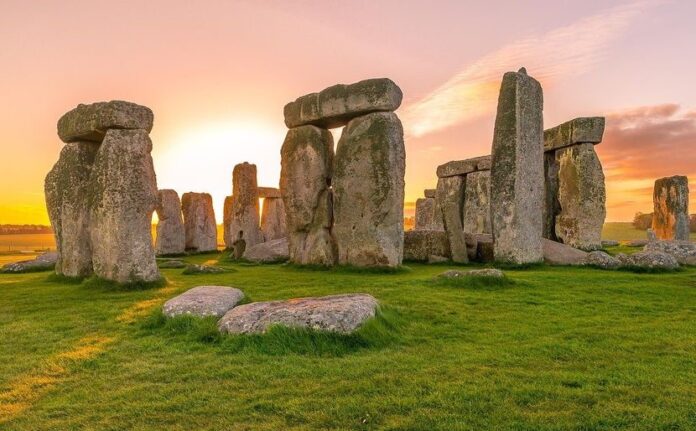A solstice — derived from the Latin sol (“sun”) and sistere (“to stand still”), because the seasonal movement of the Sun’s daily path (as seen from Earth) appears to “stand still” at a northern or southern limit before reversing direction — is an event that occurrs when the Sun reaches its most northerly or southerly day-arc relative to the equator. Therefore, there are two solstices that occur annually: around June 21 (commonly known as “Summer Solstice” for being the first day of summer and the longest day of the year) and December 21 (commonly known as “Winter Solstice” for being the first day of winter and the shortest day of the year).
On the other hand, an equinox — derived from the Latin aequinoctium, from aequus (equal) and nox (night) — is commonly regarded as the instant when the center of the visible Sun is directly above the Equator, and this occurs twice each year: around 20 March (called “Spring Equinox” as it marks the begining of spring in most cultures) and 23 September (called “Autumnal Equinox” as it marks the beginning of autumn). The equinoxes are the only times when the solar terminator (the “edge” between night and day) is perpendicular to the equator, and hence daytime and nighttime are of approximately equal duration.
The solstices, together with the equinoxes, are connected with seasons, harvists and livelihood. Therefore, many cultures celebrate various combinations of the solstices, the equinoxes, and the midpoints between them, leading to various holidays arising around these events.
Mindful that the solstices and equinoxes symbolize the fertility of the land, agricultural and food production systems, cultural heritage and their millenary traditions; the General Assembly of the United Nations acknowledged that the celebration of those events is an embodiment of the unity of the cultural heritage and centuries-long traditions, and further play a significant role in strengthening the ties among peoples on the basis of mutual respect and the ideals of peace and good-neighborliness. It, therefore, recognized 21 June as the International Day of the Celebration of the Solstice.
Views: 108






